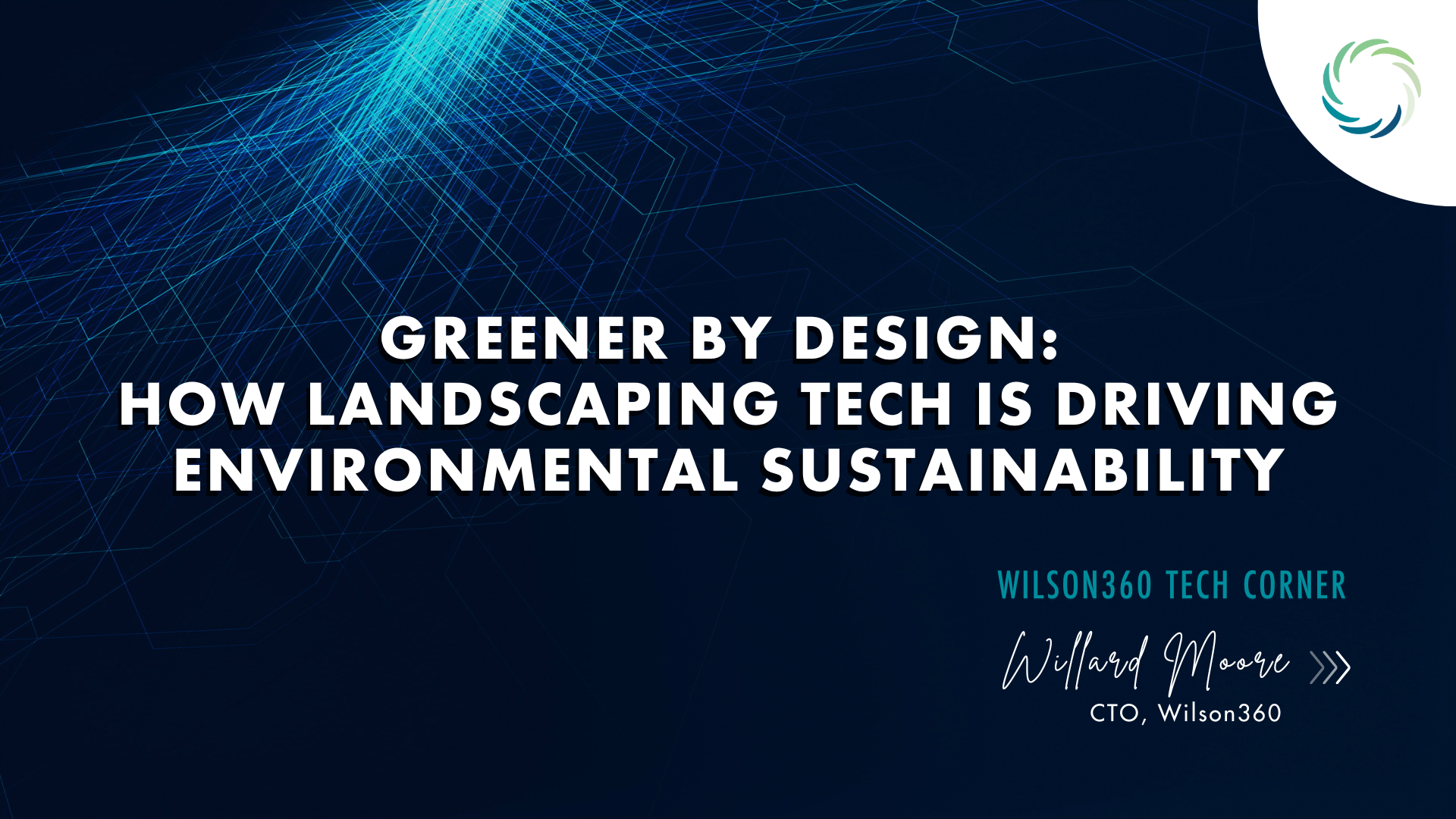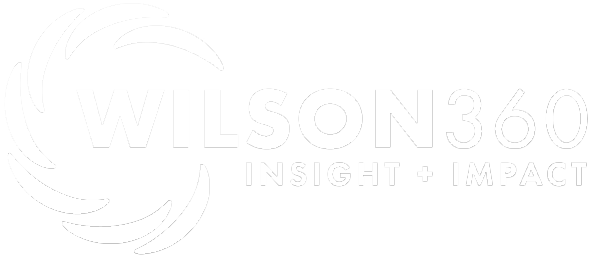
Greener by Design: How Landscaping Tech Is Driving Environmental Sustainability
by Willard Moore, CTO of Wilson360
Sustainability is no longer a fringe idea—it’s becoming central to how landscaping businesses plan, operate, and grow. And as environmental expectations rise from municipalities, commercial clients, and even residential customers, technology is stepping in to help businesses meet the moment.
For account managers, estimators, operations leaders, and owners, tech enables a shift toward smarter, cleaner, and more efficient practices—without compromising performance or profitability. Here’s a look at how emerging tools and platforms make that possible.
Smart Irrigation and Water Management
Water is one of the most critical and heavily regulated resources in landscaping. Today’s irrigation systems aren’t just on timers—they’re powered by real-time data, predictive weather modeling, and responsive soil sensors.
These systems help landscaping companies dramatically reduce water waste while improving plant health and long-term maintenance outcomes. In drought-prone regions, they’re not just efficient—they’re essential. For account managers and crews, remote control via mobile dashboards makes adjustments faster and more precisely.
Electric and Battery-Powered Equipment
The shift away from gas-powered machines toward electric and battery-powered equipment is gaining serious ground. These tools not only reduce emissions and fuel consumption, they also lower noise pollution—an increasingly important factor in urban and HOA-governed neighborhoods.
For crews, these machines are lighter and require less maintenance. For the business, they signal a visible commitment to sustainability that many clients now look for when choosing a service partner.
Carbon Tracking and Sustainability Reporting
Sustainability isn’t just about practice—it’s also about proof. More businesses are adopting digital tools to monitor their environmental footprint, track carbon output, and build reports that align with internal goals or client requirements.
Whether it’s fuel usage, energy consumption, or materials waste, these insights help landscaping companies benchmark their performance and stay accountable. This data is increasingly valuable in winning contracts, meeting compliance standards, and building trust with environmentally conscious clients.
Autonomous and Efficient Operations
From self-guided mowing systems to optimized routing software, automation reshapes how teams deliver landscaping services. These technologies reduce idle time, lower emissions, and better use limited labor resources.
They also increase consistency in service delivery, which benefits both the business and the client. For leaders focused on long-term growth, these tools support leaner operations while advancing environmental goals.
Final Thoughts
Environmental sustainability is more than an aspiration—it’s fast becoming a competitive advantage, if not already.. Landscaping companies that embrace tech-forward solutions are not only reducing their environmental impact, they’re building smarter, more resilient businesses.
The future of landscaping will be measured not just in square footage, but in water saved, emissions reduced, and long-term value created. Technology is how we’ll get there.
W360 Tech Corner features Willard Moore, Wilson360 CTO, breaking down the latest trends and innovations transforming businesses—from AI to performance tools—keeping you ahead of the curve. Connect with Willard at [email protected].

